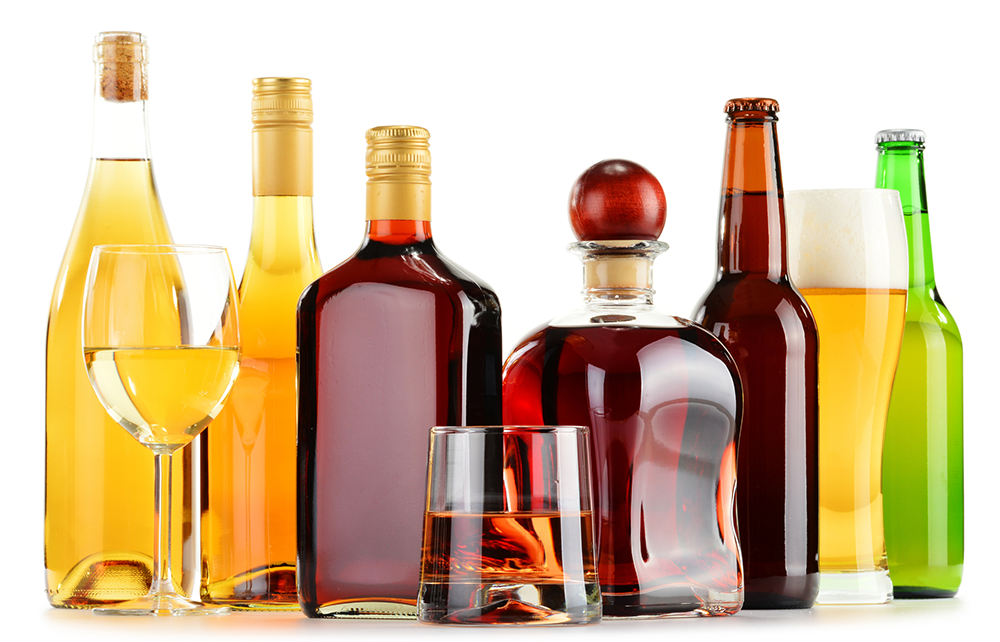‘Good for you. Amazing. I should do the same.’ ‘You must feel great. Lucky you.’ This is what I hear when I tell people I haven’t touched alcohol for a year or more. Behind their bland words, I detect an air of pity and bafflement, even a hint of contempt. I know what they’re thinking because I used to feel the same way. The teetotaller hasn’t escaped a disease, but contracted one. Perhaps they’re right and the ill-effects of alcohol are wildly exaggerated. Plenty of all-day boozers lived to a ripe old age. Winston Churchill, Frank Sinatra, Elizabeth Taylor, Robert Mitchum, Joan Crawford. Then there are the rock stars in their eighties who drink Jack Daniel’s for breakfast with no problems.
I was sorely tempted to join AA because the second ‘A’ sounds so exciting
Sobriety remains stubbornly unpopular despite all the advantages cited in its favour. Within a mile of my house there are two temperance societies that are open for just an hour a week. Clearly there’s no demand. The same patch boasts 20 pubs that sell booze every day from noon to midnight. But if alcohol were a deadly poison, these bars would have no customers. And I haven’t felt any physical benefits since giving up. I weigh the same. I feel the same. Insomnia is still my nightly companion. I’m often awake at 4 a.m. eating slabs of Lidl chocolate and trying to get to sleep by reading Solzhenitsyn.
When I’m asked why I quit, I realise I’m not being canvassed for health tips. People want a rattling good yarn. A rock bottom moment. For me, it was a gradual process. My son turned 17 last year and I began to think about myself at that age, in 1980, when I was too young to buy a drink. I had a great year. I worked as a gardener, played in a rock band, found a girlfriend, performed in the school play and got a D in my English A-level. In the summer, I took the Magic Bus to Athens and went island-hopping with my friend Ted. No drink involved. My life is much simpler nowadays and I have fewer shocks and surprises to face. So I just reverted to the open, upbeat mindset of my teenage years. The rest was easy.
People want to know if I turned to a support group or a therapist. I was sorely tempted to join AA because the second ‘A’ sounds so exciting. A secret clan of rebels and exiles who live undercover and meet in safe houses to exchange news about their deadly battle against a diabolical scourge. In fact there’s nothing ‘anonymous’ about AA because the members have to state their name at the start of each meeting. To an outsider it looks like an old-fashioned evangelical cult based on piety and ego-stroking. The quitters sit in a circle and take turns to moan about their miserable childhood, their tricky wife, their broken ambitions, their lazy colleagues and their dreadful neighbours. It’s like a grandads’ pub in mid-afternoon but without any beer or snacks.
There’s a lengthy creed to memorise. The 12 Steps. Twelve of them. That’s rather a lot of homework, isn’t it? Moses only needed ten. And Jesus boiled it down to three words: ‘Love thy neighbour.’ But the 12 Steps go on for ever. And they include the notorious Step Eight, ‘making amends to persons we harmed’. This obliges members to telephone their friends and relatives and beg absolution for long-forgotten misdeeds. I’ve received two of these nuisance calls and they’re hellish to deal with. You can’t just say: ‘Oh, belt up and stop wallowing, you saddo.’ You have to offer the clingy penitent a few words of comfort and solace, even though you’re furious at being dragged into someone else’s tawdry meltdown. Keep quiet. That’s my advice to ex-boozers. Pipe down. No one’s interested. Well, apart from the shrinks who make money by eavesdropping on other people’s woes.
The therapy trade hovers uncertainly between science and witchcraft. Shrinks use titles like ‘doctor’ and ‘professor’, but they disregard the first axiom of experimental medicine. A treatment that fails should be discarded and replaced with an alternative that may work better. But no. The therapist keeps hammering away at the same problem with the same method, week after week, until either the victim goes bankrupt or the therapist dies. The difficulty is that we let them off the hook. We pretend that therapy delivers solutions when the evidence suggests the opposite. A shrink is like an incompetent stylist who can’t fix your hair but charges you to sit in the salon complaining about it.
This lucrative scam is kept alive by the myth that ingrained habits are impossible to break without expert help. But the desire for a drink is no stronger than the desire for a doughnut. If the urge arises, pause a moment, breathe in, breathe out, say ‘no’ firmly and then move away from the doughnut shop. That’s all it takes. You already have the self-control you need, but if you let a therapist grab the tiller, you’re lost. Your mind is your own. And you mustn’t give a brainwasher permission to decide what goes in and what comes out. I mean no disrespect to the brainwashers themselves. Some shrinks are nice people. They’re all con-artists, of course, but they’re great company because they love to gossip.








Comments